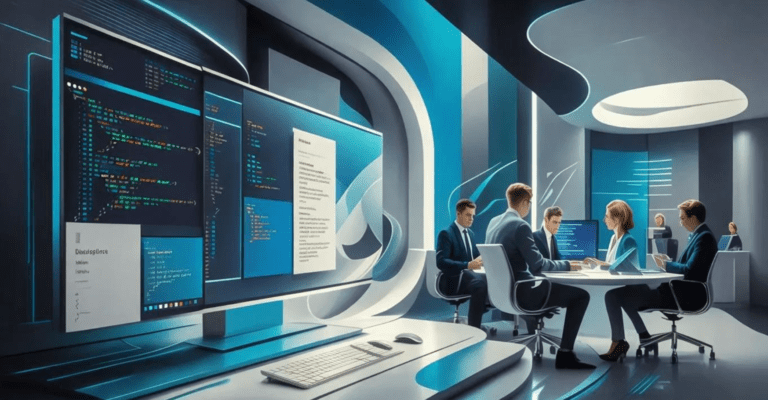As a student at Usha Mittal Institute of Technology, Mumbai, I’ve had the unique opportunity of going through the internship recruitment process of Deutsche Bank in 2023 for the TDI intern batch of 2024, and I want to share my journey with you. I’ll also highlight what worked for me and how you can prepare if Deutsche Bank comes knocking at your campus.
Short Summary
Focus on quality problem-solving, targeted coding practice, and brushing up on DBMS, OS, and networking. Showcase your projects, craft an honest and concise resume, and treat interviews as discussions. Be persistent, and prepare for intense coding rounds and insightful interviews that test both your technical and personal strengths.
Introduction
When Visa Inc. rolled onto our campus with internship opportunities, I wasn’t overconfident, but my mindset was, “Coding? Wo toh aata hai.” But this overconfidence was quickly tested! These rounds don’t just evaluate your coding skills; they push you to solve problems under pressure and handle adrenaline that clouds your thinking. What I learned? A reality check that sparked a deep dive into preparation, especially for Deutsche Bank, all in a two-week crunch time.
The Preparation
Strategic Problem Solving: It’s not about solving any random question—target questions relevant to the company. Quality trumps quantity.You can check out websites like CodingNinja.com where you can filter based on companies.
Persistence: When your code results in a “time exceeded” error, remember: “ek din mein nai hoga.” Learn, revise, and move on to the next challenge.
Tools: Coding Ninjas worked for me, but pick what suits your style. Remember, coding is just a part of it—brushing up on DBMS, operating systems, and networking is key.
The Interview Process: A Journey of Self-Discovery
The online coding round was just the beginning. Cracking it felt like a victory, but there were still three intense interview rounds to go, each making me feel like I was on the 1 crore question of Kaun Banega Crorepati. These interviews tested more than just technical knowledge—they probed who I am as an individual.
Interview Process Overview
- Online Coding Round (120 mins)
- Date: around August
- Platform: HackerRank
- Topics: OOPs, SQL, Computer Networks, DBMS, OS
- DSA Questions: You will have 2 questions(medium level).Try to solve at least one question fully with all test cases passed for a good shot at the interview shortlist.
- Technical Round (45 mins)
- Expect discussions on basic programming questions like Fibonacci, followed by real-life OOPs application questions.
- Be prepared for SQL, joins, and keys.
- The interviewer might ask you about your most significant project. I was asked about my Linux projects, which led to a discussion on bash scripts and cron jobs.
- Professional Fitment Round (25–30 mins)
- This round is less technical and more about gauging your personality. Questions might range from your interests to your family background.
- They also want to know why you want to work for Deutsche Bank. It’s okay to be candid!
- HR Round (15 mins)
- This round is all about behavioral questions. Communication skills matter the most, so stay confident and honest.
My Key Takeaways:
Project Showcasing: Multiple projects serve as great conversation starters and steer the interview in your favor. Make sure your resume reflects your actual skills.
Resume Crafting: A longer resume doesn’t mean better chances. Be concise and genuine. If you aren’t confident about something, don’t include it.
Authenticity over Memorization: Don’t memorize generic answers—be yourself, and answer honestly. Interviewers appreciate honesty and confidence.
Engagement and Curiosity: Treat the interviews as conversations. Ask questions, engage, and learn from the process.
Personal Tips for Juniors
- Don’t over-prepare your introduction. Speak naturally—it will make you sound authentic.
- When asked ‘Why Deutsche Bank?’—give an honest answer. I shared how I felt validated and respected after spending the entire day with the Deutsche Bank team.
- Stay relaxed during the HR round. The day is long, and it’s okay to feel drained. Walk in with a “jo hoga dekhlenge” attitude—it helps take the pressure off.
Final Words
Deutsche Bank’s internship process is not just about coding; it’s a test of your overall personality. Approach it with persistence, honesty, and a willingness to learn.
Good luck to all future applicants! You’ve got this!
What I Learned: The Preparation
- Strategic Problem Solving: Don’t just solve questions haphazardly. Apply filters and target questions specific to the companies you’re aiming for. It’s about quality, not quantity.
- Persistence: Facing a challenging problem can be daunting. When your well-thought-out code results in a “time exceeded” error, remember, “ek din mein nai hoga”. If you’re stuck, review the solution, understand the logic, and move on. Success and that perfect 10/10 test case score are within reach.
- Tool of Choice: I found Coding Ninjas exceptionally useful for its interface and features, but remember, this is a personal preference. Choose the tool that best suits your learning style.
- Beyond Coding: Don’t forget to brush up on your networking, operating systems, and DBMS knowledge. These areas are crucial for both MCQs and interviews.
The Interview Rounds: A Journey of Self-Discovery
Cracking the coding round felt like a victory, which awaited three rounds of interviews, each more intense than the last. Each round felt like that 1 crore question on Kaun Banega Crorepati. I realised these interviews were less about technicalities and more about me as an individual.
Key Realisations:
- The Power of Projects: Having multiple projects not only bolsters your technical knowledge but also serves as excellent conversation starters during interviews. They demonstrate your skills and can often steer the conversation in directions where you’re most comfortable.
- The Art of Resume Crafting: Your resume is the interviewer’s roadmap to your capabilities. Draft it thoughtfully; it’s the only thing they know about you. Ensure it accurately reflects your skills and experiences, as discussions often revolve around this document.if you aren’t confident about something simply don’t put it .A longer resume doesn’t mean more marks .
- Authenticity Over Memorization: Ditch the “10 most asked interview questions” approach. Genuine, honest responses are far more valuable than rehearsed answers. Be yourself, with confidence and honesty.
- Engagement and Curiosity: Treat these rounds as discussions rather than interrogations. Show genuine interest, ask questions, and engage in the conversation. It’s an opportunity to learn as much as it is to be evaluated.
So gear up , the world awaits 🙂
FAQs:
What is the best way to approach Deutsche Bank’s HR round?
Stay confident and honest. Be prepared to discuss your achievements, interests, and personal experiences, avoiding generic answers. The key is authenticity and good communication.
What is the interview process for Deutsche Bank’s internship?
The interview process typically involves an online coding round followed by three interview rounds: Technical, Professional Fitment, and HR. Each round tests your coding skills, personality, and communication abilities.
How should I prepare for Deutsche Bank’s coding round?
Practice easy to medium-level DSA problems on platforms like Codeforces, LeetCode, and Coding Ninjas. Focus on concepts in OOPs, DBMS, SQL, Computer Networks, and Operating Systems.
What kind of projects should I include in my resume for Deutsche Bank’s internship?
Include projects that highlight your coding skills, problem-solving abilities, and technologies like database. springboot , Reactjs etc . Be ready to discuss your most significant project in-depth.
What is the Professional Fitment Round in Deutsche Bank’s internship process?
This round focuses on your personality and fit within the company. Expect questions about your interests, motivations, and why you want to work at Deutsche Bank.
About me
I’m Nidhi Chavan, a gradate in Computer Science student at Usha Mittal Institute of Technology, Mumbai. I’ve had the incredible opportunity of interning at Deutsche Bank in 2024, where I worked on distributed tracing, CI/CD pipelines, and microservice monitoring. I’m excited to share that I’ve also been selected as a full-time software engineer at Deutsche Bank for 2025. With experience in web development, blockchain, and AI projects, I’m passionate about building scalable and innovative solutions across various technologies.





